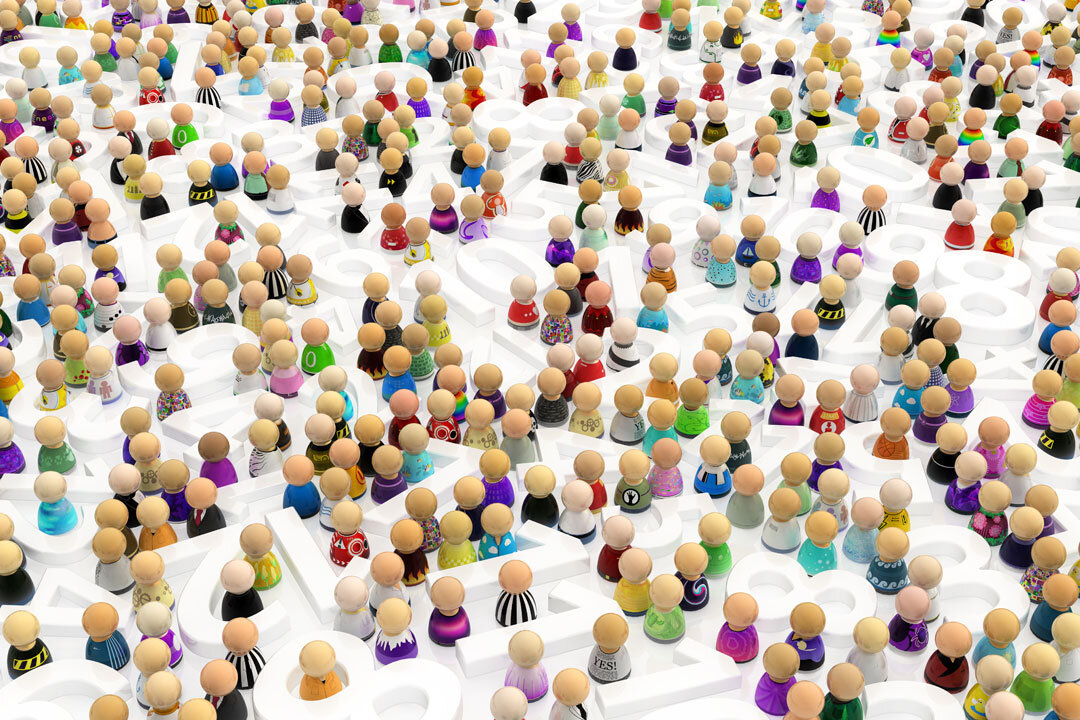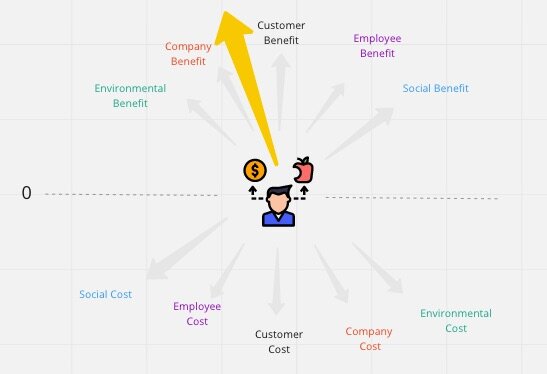Value in a Complex System
In my last post I wrote about how value might adhere to Newtonian mechanics in the sense that there are multiple forces applied to value which result in a direction of that value. However, without fully comprehending the numerous forces at play and, perhaps more importantly, their relationships, it has been easy for us to believe the direction of value is one way, when it is really in another. Globally, this has led us to our current situation of, among other things, environmental degradation and social disparity.
In a larger system (like a municipal, provincial, federal, or global economy), the relationships between the forces impacting the direction of value are inherently complex. Once again I have been inspired by the work of Mariana Mazzucato (this time from this article) on economic policy choices and one of her colleagues, Simon Sharpe, who also wrote this working paper on complexity and decision making in economics. Both of these papers refer to the static model of cost/benefit analysis which is often used (unsuccessfully) to make decisions around economic value. This, in turn, got me thinking about the Cynefin Sense-making framework developed by Dave Snowden that provides a way of thinking about approaches to interacting with different types of systems. In my field of product development coaching, that framework has been very useful in helping people understand why complex problems (as opposed to complicated problems) require emergent solutions. Historically, economics (like product development) has WANTED to be considered a complicated problem whereby enough expertise and analysis could lead to appropriate decisions and solutions. In reality, economics (like product development) represents a truly COMPLEX system requiring a different approach to making decisions and solutions. The relationships between the elements of the system are not simple or even complicated.
From our work with agile product development teams, we’ve come to understand that we need to work inside a complex adaptive system in a way that allows us to understand how changes in one element of a system impact all the other elements. The use of iterative/incremental development approaches allows us to learn about the complex system and continually make decisions to find the right path towards the desired goal. This cannot be done from outside the system, as is assumed with complicated problems which merely require the right expertise, analysis and time to solve.
So rather than trying to model an economy which is a complex adaptive system, it strikes me that economists would do well to be (and some clearly are) focused on policy structure and decisions that allow for rapid learning amidst constant change. From within those new structures, governments could focus on a goal of maximizing public good by taking smaller bets, seeing how the system behaves and responding accordingly - either proceeding or tacking, based on an iterative/incremental approach.











